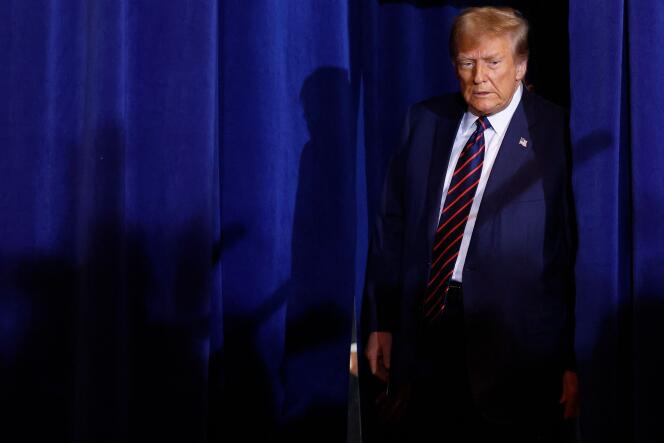


With nine months to go before the next presidential election, the United States is still haunted by the previous one and its dramatic consequence: the attempted coup d'état initiated by Donald Trump and his associates, which culminated on January 6, 2021, with the assault on the Capitol. In the current collision between politics and justice, the Supreme Court is set to play a major role. It is tasked with resolving a number of legal controversies, all of which concern Trump, both as a candidate in the Republican primaries and as an ordinary citizen. The nine justices of the Supreme Court – dominated six to three by conservatives – will assume their responsibilities at a time when the institution itself is plagued by controversy, due to proven ethical failings of several members.
In 2023, Trump spent $50 million on legal fees. A simple prelude. With his cohort of lawyers and dozens of motions filed, the former president is following a classic strategy of obstruction and obfuscation. He wants to prevent any of his trials from being held before the election. Charged with 91 counts in four cases, he is consolidating his electoral base by alleging a Democratic witch-hunt. Justice is slow, especially for a former president. American voters could still be uncertain about Trump's criminal guilt when they vote in November.
The first step for the Supreme Court takes place Thursday, February 8, with the exchange of arguments in the Colorado-Maine case. Both states ruled that Trump could not participate in the Republican primaries due to his role in the January 6 uprising and the assault on the Capitol by his supporters. It's an "undemocratic" sanction, according to the brief filed by the former president's lawyers, who are calling on the nine justices to "protect the rights of tens of millions of Americans who want to vote for President Trump."
The Supreme Court is tasked with resolving long-standing ambiguities. It is called upon to examine section 3 of the 14th amendment to the Constitution, the basis for Trump's exclusion in the two states of Maine and Colorado. The amendment was adopted in 1868, after the Civil War, to prevent former Confederate soldiers and officials from holding elected office again. It stipulates that no person may hold a civil or military office if he or she has engaged in insurrection or given assistance to insurgents. "This is an extremely complex matter," explained Professor Richard Hasen of the University of California, Los Angeles, who is closely involved in these debates. "Many legal points have never been considered by the Supreme Court. From a procedural point of view, it's not clear who has the power to decide on disqualification. Finally, it's not clear whether this article applies to Trump, nor whether he has been formally engaged in insurrection and how it is defined."
You have 65% of this article left to read. The rest is for subscribers only.
